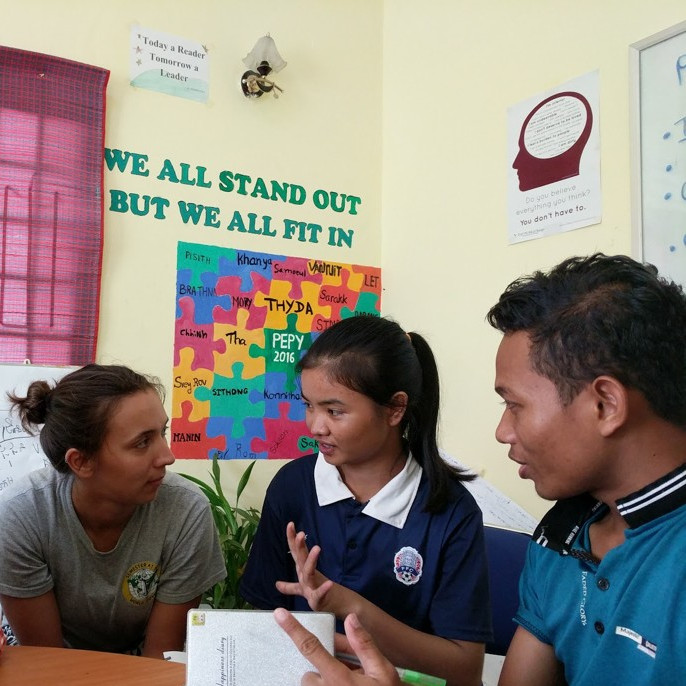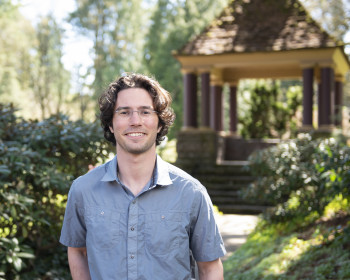Students Share Findings From Summer Research in Cambodia
Open gallery

On September 26, Lacey Jacoby BA ’17, Andrea Blobel Perez BA ’19, and Peter Bradley BA ’19 joined Assistant Professor of Sociology Maryann Bylander to discuss conclusions from their student-faculty research project this past summer. In June, the students and Bylander traveled to Cambodia to investigate the impact of microcredit financing in a project entitled “Loans That Change Lives: Interrogating Microcredit in Cambodia.” Microcredit is the practice of providing small loans at (in theory) low-interest rates to new businesses and individuals.
“Cambodia has a unique history, and it has a unique experience with microcredit,” explains Bylander. “It’s one of the places in the world where there’s the most microcredit relative to its population. It has one of the fastest deepenings of credit across the world, across history. Cambodia is experiencing now what some people have said is a crisis of debt stress and overindebtedness.”
The student-faculty fieldwork took place over three weeks, conducting interviews with investors, microfinance institution (MFI) managers, loan officers, NGOs, and borrowers to achieve the greatest possible understanding of microcredit finance as a system. With the fieldwork partially conducted alongside Cambodian university students in Siem Reap, the project will continue this fall with a published research paper based on the findings.
“We went into this project asking the big question ‘what does microcredit mean?’ and we investigated it from a sociological perspective,” explains Jacoby, who graduated last May and double majored in biology and sociology and anthropology (SOAN). “In our paper we argue that overindebtedness is generally discussed and understood through an individual lens—borrowers are seen as the main actors and the primary ones responsible. This is highlighted by the perceived importance of changing borrowers’ behavior as a solution to problems of overindebtedness.”
Jacoby notes that this individual lens prevents MFIs from understanding microcredit as “part of a larger system with various players and social relationships.” For instance, the motivation to take out loans is often fueled by social obligation, and loan officers have a financial incentive to recommend microcredit as a solution.
Blobel Perez, a SOAN major, expands further on this conclusion. “The focus on buyer responsibility draws attention away from the MFIs’ responsibility of lending practices and their role in the production of overindebtedness. There are structural drivers of debt that stem from the sector itself.”
The student-faculty research project was funded through a $20,000 grant provided by the ASIANetwork, an organization dedicated to promoting the study of global issues in East and Southeast Asia, particularly in liberal arts educations. Jacoby counts the experience as a building block for her future career in global health.
“I’ve found similar themes around illness that we encountered with microfinance—themes that are common throughout the field of sociology, in general. Individuals are often understood as responsible for their suffering and as a result, structural factors are obscured. Because of this, efforts to reduce suffering may be ineffective because they overlook the most significant causes. By traveling to Cambodia as part of this student-faculty team, I gained confidence in navigating new situations and environments. From logistical details to the more abstract, working alongside Professor Bylander prepared me well for my next job and career as a whole.”
Sociology and Anthropology (SOAN) Department
This story was written by Scout Brobst ’20.
More Newsroom Stories
Public Relations is located in McAfee on the Undergraduate Campus.
MSC: 19
email public@lclark.edu
voice 503-768-7970
Public Relations
Lewis & Clark
615 S. Palatine Hill Road MSC 19
Portland OR 97219

